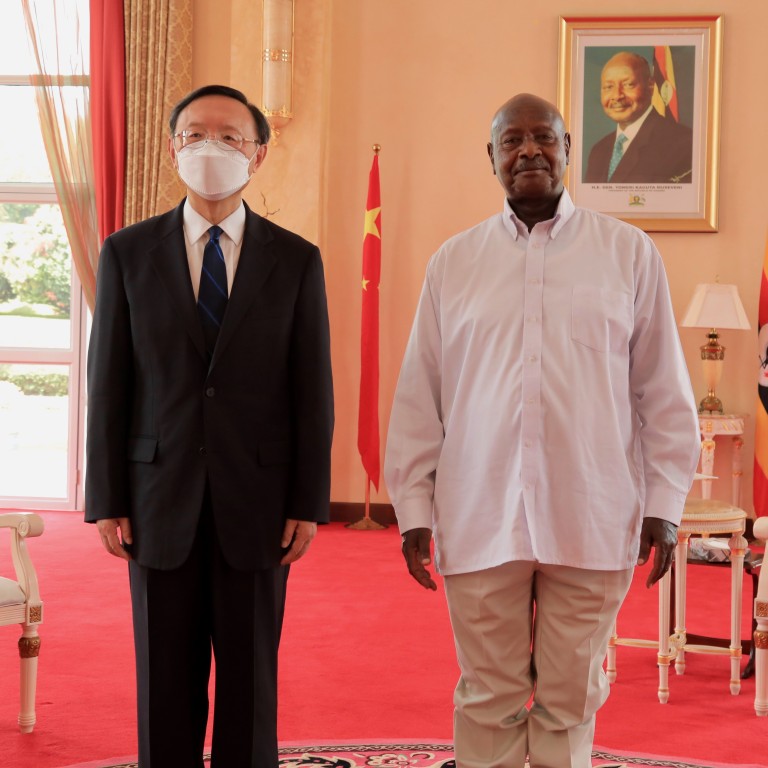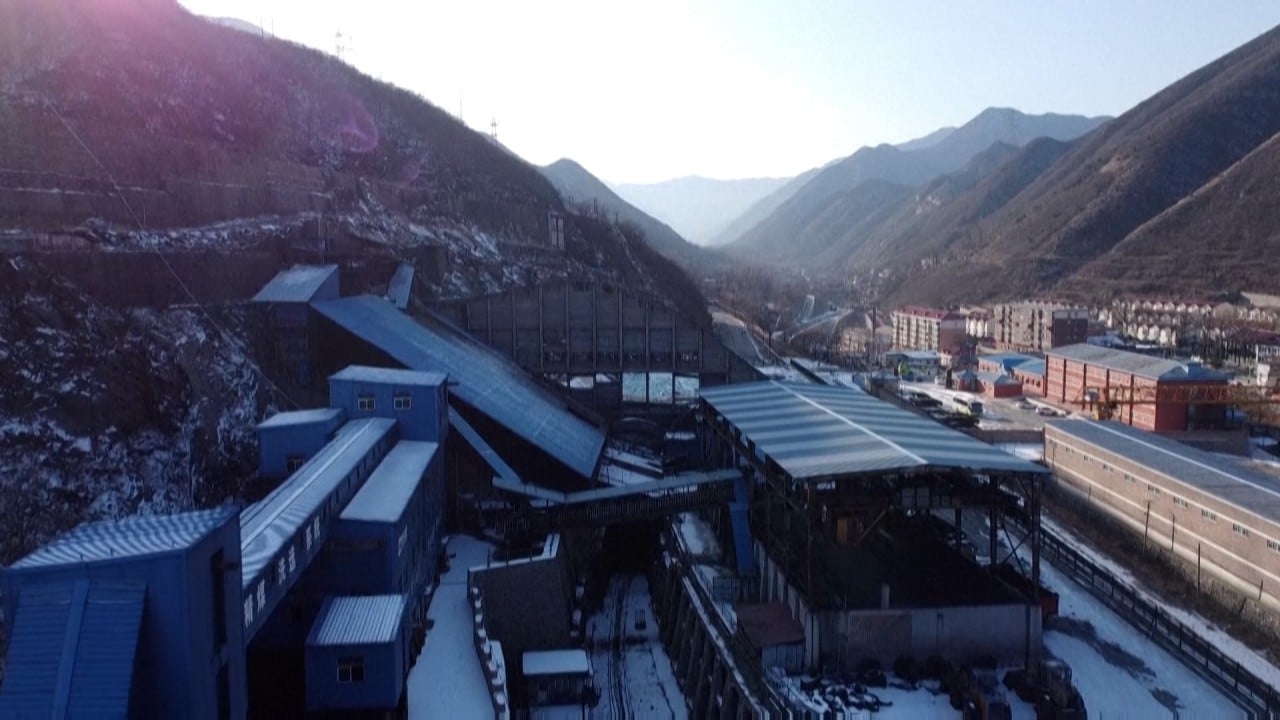
China sees chance to woo Uganda as West mulls sanctions for bloody election
- Top diplomat Yang Jiechi vows China will fund infrastructure projects and donate Covid-19 vaccines
- United States and European Union have threatened to impose sanctions on Ugandan officials over disputed election and human rights violations
Yang Jiechi, China’s top diplomat, on Sunday met President Yoweri Museveni and congratulated him on his win in last month’s polls, which were disputed and preceded by a crackdown on opposition followers.
“Your re-election last month speaks volumes of the trust and support from the people of Uganda to your continued presidency,” Yang said while meeting Museveni in the city of Entebbe, on the shores of Lake Victoria. He said China hoped Uganda would “enjoy stability, development and progress”.
The United States and the European Union have threatened to sanction Ugandan officials over the disputed election and human rights violations. Last week, the EU’s parliament resolved to impose sanctions, after the US state department warned it would consider doing so against officials “responsible for the undermining of democracy and human rights in Uganda”.
Analysts said the timing of China’s attempt to bolster its diplomatic and economic relations with Uganda may be significant.

02:06
Chinese cash funds African coal plants despite environmental concerns
David Shinn, a professor at George Washington University, said: “China may see an opening for improving relations with Uganda in view of Western concerns over the disputed elections.”
Yang said the Chinese government would continue to fund projects through the belt and road framework, without providing details.
Museveni said that the two countries had agreed to strengthen political and economic ties, that he expected more Ugandan products – including fish, beef and cereals – to enter the Chinese market, and that Uganda was willing to work with China to advance its belt and road strategy.
Uganda has already secured billions of dollars from China to build infrastructure. Beijing funded the Isimba and Karuma hydro power plants, the Entebbe-Kampala Expressway – built by Chinese companies – and the expansion of Entebbe International Airport.
Between 2000 and 2018, Beijing advanced US$2.86 billion, according to data compiled by the China Africa Research Initiative at Johns Hopkins University.
China’s Belt and Road Initiative explained
Kutesa said the country was seeking approval from Chinese authorities to allow Uganda Airlines to fly direct to China.
Uganda has also asked China to release funding to build the Standard Gauge Railway linking Uganda to Kenya, Rwanda and South Sudan. The funding faced hurdles after China Exim Bank raised concerns over the commercial viability of a rail link it was expected to fund from Naivasha in Kenya to Malaba at the border, where the Ugandan line would connect to.
Stephen Chan, a professor of politics and international relations at the School of Oriental and African Studies in London, said the occasional tensions between Zambians and expatriate Chinese businesspeople could be discussed, but the trip was primarily about reinforcing political ties.
“The Chinese would be assuming that President [Edgar] Lungu will win this year’s Zambian elections, and President Museveni has just controversially won his in Uganda,” Chan said. “So it is more a matter of solidifying relationships than starting something radically new.”

